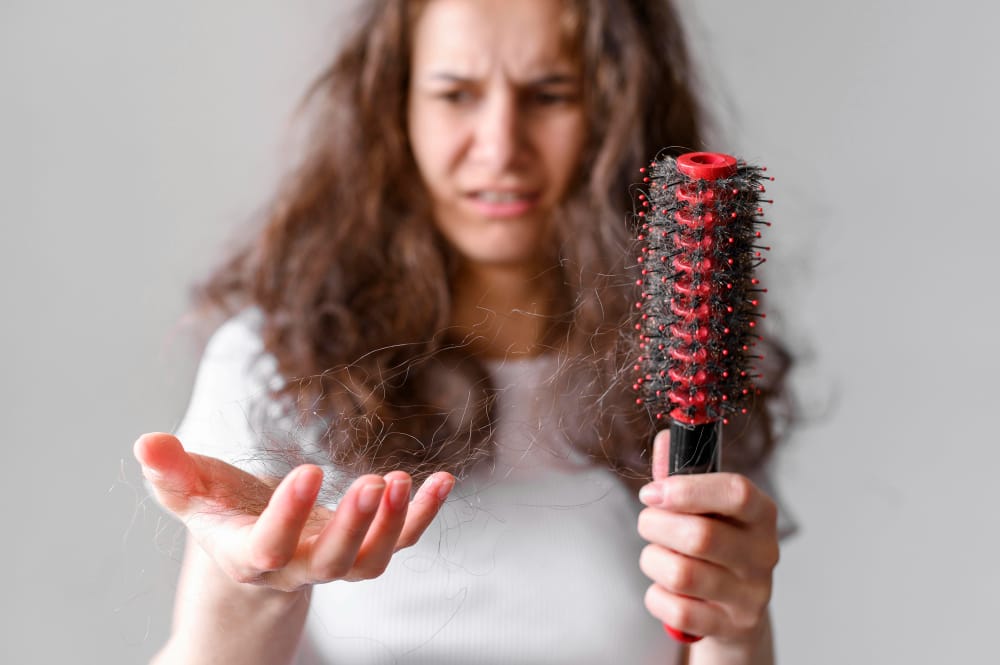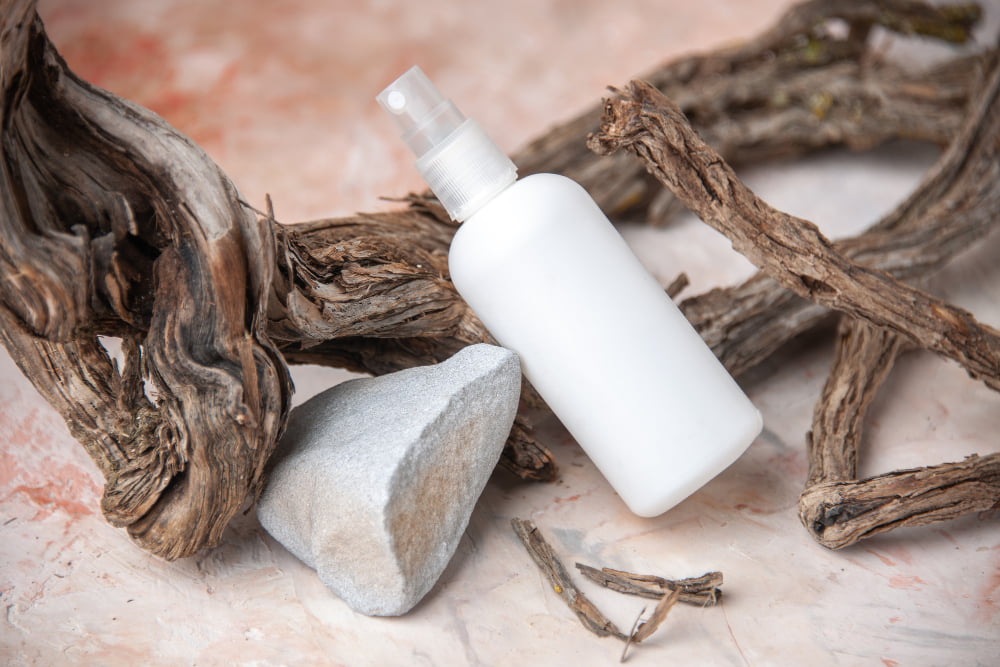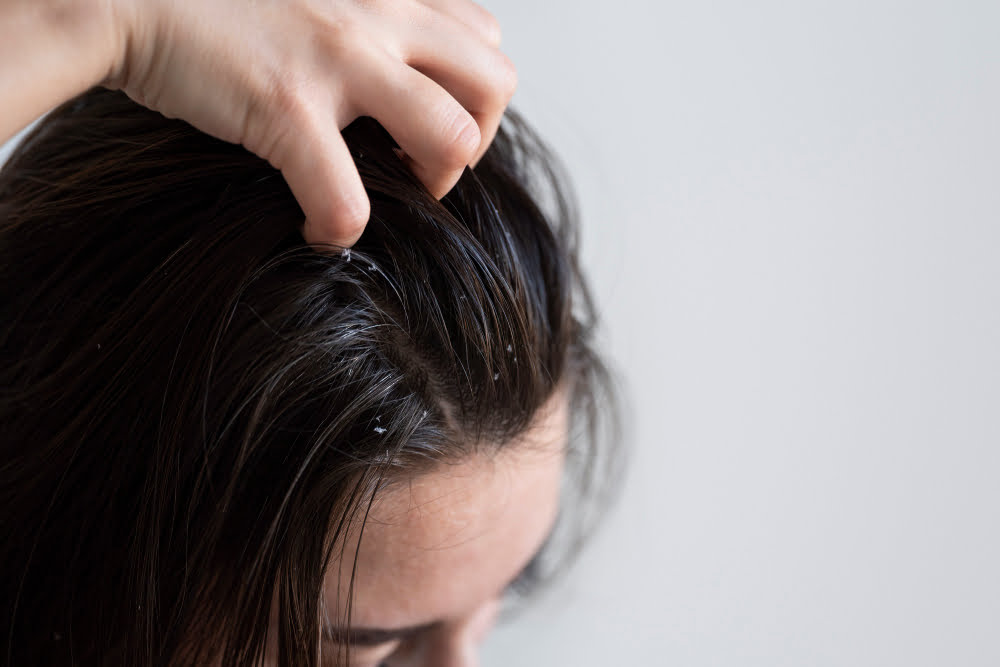Are you tired of seeing more hair in your brush than on your head and looking for best shampoo for hair fall and thin hair? Hair fall can be incredibly frustrating, leaving you searching for solutions that actually work. But what if the answer isn’t hidden in expensive products or salon treatments? What if you could make the best shampoo for hair fall and thin hair right at home?
In this article, we’ll show you how to craft DIY shampoos packed with natural ingredients that not only fight hair loss but also strengthen and thicken your hair. Say goodbye to chemical-laden shampoos and hello to healthier, fuller locks—all with ingredients you probably already have in your kitchen!
Key Ingredients for Best Shampoo for Hair Fall and Thin Hair:
To address hair fall and promote thicker hair, certain ingredients are proven to work wonders. Here are the top ingredients you’ll want in your homemade hair fall out shampoo:
- Aloe Vera: Moisturises the scalp, reduces dandruff, and strengthens hair roots.
- Coconut Oil: Packed with fatty acids, it nourishes hair and prevents breakage.
- Castor Oil: Promotes hair growth and adds thickness.
- Rosemary Essential Oil: Known to stimulate hair follicles and boost circulation to the scalp.
- Onion Juice: Rich in sulphur, it helps in collagen production for stronger, healthier hair.
- Fenugreek: Reduces hair fall and thickens hair strands.
DIY Shampoo Recipes:
1. Aloe Vera and Coconut Oil Shampoo:
Ingredients:
- 2 tablespoons of fresh aloe vera gel
- 1 tablespoon of coconut oil
- 1 teaspoon of rosemary essential oil
- 1 cup of mild shampoo base (sulfate-free)
Method:
- Mix aloe vera gel and coconut oil together in a small bowl.
- Add the rosemary essential oil and blend well.
- Combine this mixture with the mild shampoo base.
- Apply to wet hair, massaging your scalp in circular motions. Leave it on for 2-3 minutes before rinsing off.
Benefits: This shampoo deeply nourishes the scalp, strengthens the hair roots, and helps reduce hair fall while promoting thicker hair growth.
2. Castor Oil and Rosemary Shampoo:
Ingredients:
- 1 tablespoon of castor oil
- 10 drops of rosemary essential oil
- 1 cup of sulfate-free shampoo base
- 1 teaspoon of honey
Method:
- Heat the castor oil slightly to make it easier to mix.
- Combine castor oil, rosemary oil, and honey.
- Stir the mixture into your shampoo base.
- Massage it into your scalp and hair, leaving it on for 2-3 minutes before rinsing thoroughly.
Benefits: Castor oil boosts hair thickness, while rosemary stimulates hair growth. This shampoo helps you combat both hair fall and thin hair effectively.
3. Onion Juice and Fenugreek Shampoo:
Ingredients:
- 1 small onion (juiced)
- 2 tablespoons of fenugreek seeds (soaked overnight and blended into a paste)
- 1 cup of mild shampoo base
- 10 drops of lavender essential oil
Method:
- Extract juice from a small onion and set it aside.
- Blend the soaked fenugreek seeds into a fine paste.
- Mix the onion juice and fenugreek paste with the shampoo base.
- Add lavender essential oil to mask the onion smell.
- Apply the shampoo to wet hair, leave it for 3-4 minutes, and rinse thoroughly.
Benefits: Onion juice is rich in sulfur, which boosts hair strength and growth, while fenugreek works to reduce hair fall and improve scalp health.
Understanding the Causes of Hair Fall and Thin Hair:
Let’s briefly explore why hair fall and thinning hair happen. Common causes include:
- Stress: High levels of stress can trigger hair loss.
- Poor Diet: Lack of essential nutrients like biotin and protein affects hair health.
- Hormonal Imbalance: Conditions like PCOS or thyroid issues can lead to excessive hair fall.
- Environmental Damage: Sun exposure, pollution, and chemical treatments weaken hair.
Which vitamin deficiency causes hair loss:
Hair loss can be influenced by various factors, including vitamin deficiencies. Key vitamins play crucial roles in maintaining healthy hair. Here are some essential vitamins associated with hair loss:
1. Vitamin D:
Vitamin D is vital for hair follicle growth. A deficiency can lead to hair shedding and conditions like alopecia areata. Ensuring adequate vitamin D levels can promote new hair growth.
2. Vitamin B12:
Vitamin B12 supports red blood cell production and oxygen delivery to hair follicles. A deficiency can result in anemia and hair thinning. Sources include meat, fish, dairy, and fortified cereals.
3. Biotin (Vitamin B7):
Biotin is essential for keratin production, and its deficiency can cause brittle hair and hair loss. Foods like eggs, nuts, and whole grains are rich in biotin.
4. Vitamin E:
Vitamin E acts as an antioxidant and helps improve scalp circulation. A deficiency can impair blood flow, leading to hair loss. Nuts, seeds, and leafy greens are great sources.
5. Folic Acid (Vitamin B9):
Folic acid is necessary for cell division and hair follicle health. A deficiency can hinder red blood cell production and reduce oxygen supply to the scalp. Include dark leafy greens and beans in your diet for adequate folic acid.
Hair fall causes in women:
Hair loss is a common issue among women and can be triggered by various factors. Understanding these causes is essential for effective management:
1. Hormonal Changes:
Hormonal fluctuations due to pregnancy, menopause, or conditions like poly-cystic ovary syndrome (PCOS) can disrupt the hair growth cycle, leading to hair loss.
2. Genetics:
Genetic predisposition plays a significant role in female pattern baldness (androgenic alopecia), causing thinning hair, especially along the crown and temples.
3. Nutritional Deficiencies:
Lack of essential nutrients, including iron, zinc, and vitamins like biotin and vitamin D, can weaken hair and contribute to increased shedding.
4. Stress:
Emotional or physical stress can trigger telogen effluvium, a temporary condition where hair follicles enter a resting phase, resulting in noticeable hair loss.
5. Medical Conditions:
Autoimmune disorders, thyroid issues, and scalp conditions like seborrheic dermatitis can lead to hair fall in women.
6. Hair Care Practices:
Excessive heat styling, chemical treatments, and tight hairstyles can damage hair and cause breakage, contributing to hair loss.
By identifying the root causes, you can combine external solutions like DIY shampoos with lifestyle changes for better results.
Effective shampoo for alopecia also:
While there is no cure for alopecia, using the right homemade shampoos can support hair health and potentially promote growth. The above-mentioned natural shampoos contain ingredients such as biotin from egg yolks and honey, which help strengthen hair and enhance thickness.
Additionally, incorporating rosemary essential oil in these recipes can stimulate hair follicles and improve scalp health, while a caffeine-infused shampoo made with brewed coffee promotes blood circulation to the scalp. By using these effective natural shampoo recipes, you can nourish your hair and scalp, aiding in the management of alopecia. Always consult a dermatologist to tailor your approach for optimal results.
How to Use Homemade Shampoo Effectively:
To get the most out of your homemade shampoos, here are a few tips:
- Consistency: Use your DIY shampoo 2-3 times a week for optimal results. Avoid over-washing as it can strip natural oils from your scalp.
- Massage: When applying the shampoo, spend a few extra minutes massaging your scalp. This increases blood circulation and helps the ingredients penetrate more deeply.
- Storage: Homemade shampoos don’t have preservatives, so store them in the refrigerator and use them within two weeks.
Additional Tips to Prevent Hair Fall:
In addition to using these shampoos, consider these hair care practices to maximise results:
Food for hair growth and thickness:
A diet rich in vitamins like biotin, iron, and omega-3 fatty acids will support hair growth from the inside out.
- Protein-Rich Foods:
- Eggs
- Lean meats
- Fish
- Beans
- Nuts
- Essential for building strong hair strands.
- Omega-3 Fatty Acids:
- Fatty fish (like salmon)
- Walnuts
- Flaxseeds
- Nourish the scalp and promote healthy hair growth.
- Vitamins:
- Biotin: Found in nuts, whole grains, and eggs; supports hair strength.
- Vitamin D: Present in fatty fish and fortified foods; crucial for new hair follicle development.
- Vitamin E: Available in avocados and spinach; enhances blood circulation to the scalp.
- Minerals:
- Iron: Found in legumes, lentils, and spinach; promotes oxygen delivery to hair follicles.
- Zinc: Present in pumpkin seeds and shellfish; aids in hair tissue growth and repair.
- Hydration:
- Drinking plenty of water helps maintain scalp health and supports overall hair growth.
Incorporating these foods into your diet can help promote thicker, healthier hair.
Scalp Massages:
Use oils like castor oil or olive oil to massage your scalp once a week. This helps stimulate the hair follicles.
Minimise Heat Styling:
Avoid excessive use of hairdryers, flat irons, and curlers, as they can weaken your hair over time.
Conclusion:
Creating your own shampoo at home for hair fall and thin hair is a natural, effective solution to one of the most common hair concerns. By combining powerful, natural ingredients, you can nourish your scalp, reduce hair fall, and thicken your hair—all without harmful chemicals.
Ready to try these DIY shampoos? Have you already experimented with homemade hair care products? Share your experience in the comments below! We’d love to hear your thoughts and tips, and feel free to ask any questions if you need help getting started. Let’s help each other achieve healthier, stronger hair!


